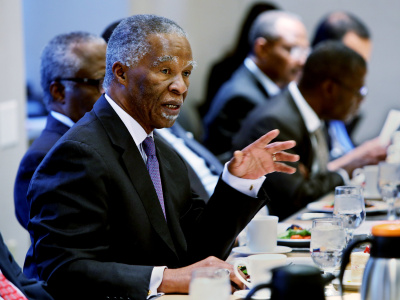
Unpacking local content requirements in the extractive sector: What implications for the global trade and investment frameworks?
Developing countries are placing an increasing emphasis on the need to derive more benefits from their resource wealth. To do so, a series of reforms have been undertaken to capture more gains from extractive resources. These include, among others, industrial policies to foster better sourcing of local content and job creation, fiscal reforms, and more collaborative partnerships with the extractive industry. This paper focuses on the question of local content in the oil, gas, and mining sectors, particularly the policies put in place to foster its use, and how this fits into the international trade and investment frameworks. It initially unpacks the definition and the scope of local content and the different levels of regulatory requirements used to address the question. It then presents evidence of what has worked (or not) in different contexts and under different conditions, before turning to the global frameworks governing local content requirements (LCRs). It goes on to make some recommendations on how international regulatory frameworks could be improved to fit the needs of countries and companies, and for a more equitable distribution of wealth.
Existing rules regarding some forms of LCRs, as defined in World Trade Organization (WTO) agreements, are quite clear—they are prohibited, disciplined, or allowed. When these measures were found insufficient to address the concerns of investors, countries concluded tighter agreements, in the form of bilateral investment treaties (BITs)/ international investment agreements (IIAs) or preferential trade agreements (PTAs), making LCRs almost impossible to put in place. Yet, this has not prevented the proliferation of new measures. It points to that there are significant weaknesses with the way rules are currently defined and enforced. The first weakness to be addressed regards the definition of LCRs, which is still subject to wide interpretation. Second, while changing WTO rules might take time, it is important to consolidate the role the organisation can play, in particular to reflect on ways to have a more coherent approach, given the multiple bilateral trade and investment agreements signed by its Members. Third, no cases have been brought so far at the WTO Dispute Settlement Body (DSB) on extractives-related LCRs, while BITs and IIAs disputes have extensively focused on the extractive sector. The main challenge is that there is a lack of transparency in arbitral rulings and proceedings that take place under the bilateral dispute mechanisms.
While transparency is necessary, it is not sufficient in itself. Therefore, countries should have space to engage and discuss these issues at a dedicated platform. Participation in this platform should be broadened to regional economic communities (RECs), which have their own experiences on setting guidelines on these issues, and also to other stakeholders, such as other international organizations or representatives of the private sector. LCRs are largely an investment issue and therefore require an investment policy solution. Yet, the continued relevance of the WTO amid the evolving trade and investment system will be conditional on its capacity to adapt to reflect the new realities. One way to address this is to design a variable geometry approach, while ensuring that the concerns of developing countries are addressed. This means allowing space for some countries desiring to move faster on certain issues the ability to do so, keeping the door open for others to join at a later stage, and allowing all others to observe. It is therefore proposed to adopt a carefully designed plurilateral framework on investment, with a set of protocols and rules of operation to guide such negotiations, which will then be agreed to by all Members of the WTO. Alternatively, RECs can play a key role in seeking to establish better rules, essentially for two reasons. Due to their localised mandate, they have a tendency to focus on areas of common interests to their members, such as building regional markets that reflect the specificities of their respective regions and designing rules that fit the development levels of their member countries. While these may create some challenges for the multilateral system, they may also provide a platform to engage on improving the rules using a sequenced approach.
Finally, an improved regulatory environment is conditional upon policy coherence and coordination across international initiatives, whose objectives are to improve the governance of the extractive sector. Numerous initiatives and institutions have been established to address specific issues or to achieve mutual goals. For instance, the Extractive Industries Transparency Initiative (EITI) aims at improving transparency and accountability in the extractives sector. Although not all countries are members of the EITI, this is an important element in the governance of the sector.
Read the full paper:


